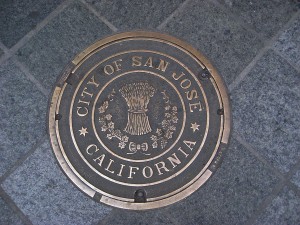Indianapolis Car Insurance, Criminals, and You
Indianapolis car insurance and traffic laws are not in place to annoy you, there is a reason for all of them.

Indianapolis car insurance is a great thing to have if you get “boxcared”.
Indianapolis may not be one of the stricter states in protecting drivers from distracted driving, but they have plenty of other laws (silly and not) to protect from all other manner of bad driving. Some of these laws try to be proactive in protecting drivers, but nothing works better than just paying attention to your surroundings and carrying Indianapolis car insurance.
Indianapolis Cell Phone Laws
Indianapolis has no cell phone laws that outright ban the use of wireless devices. You can still talk on your phone when you are driving (with or without a hand-free device) as long as you are 18 and over. Even bus drivers are allowed to talk on their cell phone in Indianapolis.
The only restrictions for wireless devices include drivers under the age of 18 not being able to use them at all, and texting while driving is illegal for everyone.
Indianapolis Traffic Laws
Traffic laws are put in place to keep us safe on the roads and some have to be written into law in explicit detail because someone did something silly. One such law in the Indianapolis Municipal Code that is a good example of this:
“No driver or operator of any vehicle shall back such vehicle on any street, alley or highway without looking to avoid danger to others or to property, or when there is another vehicle approaching within fifty (50) feet from the rear of the vehicle about to be backed.”
The above law is common sense to most drivers, but still it had to be written down more than likely because there were too many people backing up without paying attention.
Other traffic laws, like the following, are put in place not only to protect us from getting into an accident, but also for the general wellbeing of every one:
“It shall be unlawful for the operator of any vehicle, including buses and taxicabs, to operate such vehicle on any street or public place in the city when the vehicle is emitting from any source an unreasonable quantity of smoke, noxious gases or vapor, or when it is in a condition hazardous to other traffic, except while en route to a repair shop to remedy same and is being operated with due care.”
So if you don’t keep your car maintained and in good working order in Indianapolis, you had better get it taken care of before you get a ticket.
Then there are the important Indianapolis laws that are put in place to protect regular drivers from criminals:
“No driver of any motor vehicle shall drive or operate such vehicle in playing or engaging in the game, operation or maneuver commonly known as “boxcar” in concert with any other driver or drivers so as to surround or flank any other vehicle on two (2) or more sides, or willfully drive or back his motor vehicle onto or against any other vehicle, when both or all such vehicles have stopped, or stop suddenly and without excuse therefor in front of any other vehicle, thereby causing it to swerve or stop abruptly to avoid a collision, or actually causing a collision.”
The above Indianapolis law is technically both a traffic law and a car insurance law. The situation described above is a maneuver that criminals use to cause an accident and then work together as a group to get the accident blamed on the person they boxed in. These accidents include a high amount of “claimed” medical injuries and eventually a pain and suffering settlement.
The only problem is that the whole situation is a set up to get money from Indianapolis car insurance companies through insurance fraud. More than likely this law was enacted to not only try and stop this popular maneuver from happening, but also to give the authorities additional charges to use against these types of car insurance fraud groups.
Indianapolis Car Insurance
Indianapolis requires that you follow Indiana state insurance laws and carry no less than $12,500 in bodily injury coverage for one person, $25,000 in bodily injury coverage total for an accident, and $7,500 in property damage liability coverage if you wish to drive. These coverages are required to not only protect other people if you get into a car accident, but also to protect you financially from expenses you become liable for in this case.
To further protect yourself while driving, it is recommended that you get Indianapolis car insurance that provides coverage for damages to your own car (comp and collision) and medical payments for yourself and others in your vehicle.




